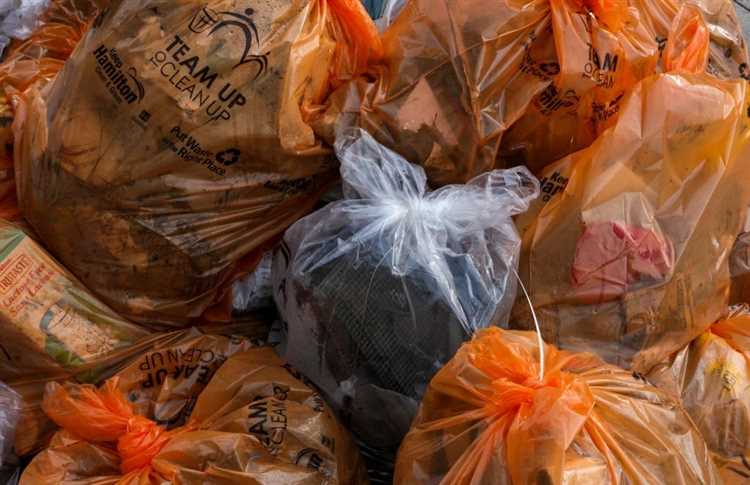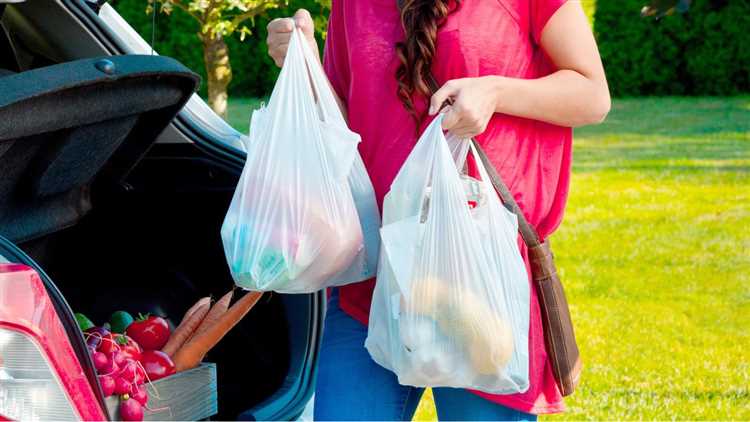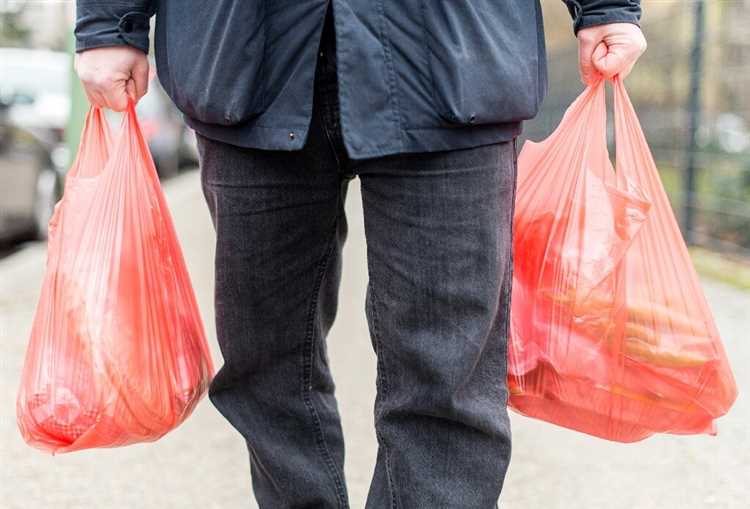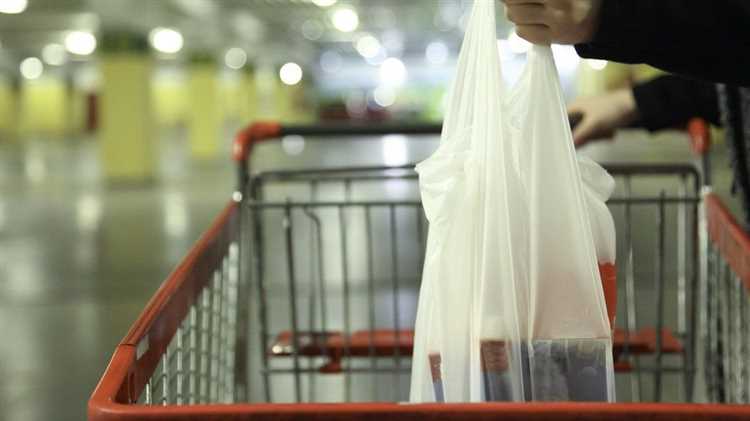
Germany’s Plastic Bag Ban is a significant milestone in the country’s commitment to environmental sustainability. As one of the largest economies in Europe, Germany’s decision to ban plastic bags is likely to have a far-reaching impact on reducing plastic waste.
Plastic bags have long been a symbol of the throw-away culture that has led to a global environmental crisis. These bags are made from non-renewable resources and take hundreds of years to break down, causing immense harm to wildlife and ecosystems along the way.
By implementing a ban on plastic bags, Germany is taking a proactive step towards reducing its ecological footprint and promoting a circular economy. This ban encourages citizens to opt for reusable alternatives such as cloth or paper bags, which not only reduces plastic waste but also conserves resources and reduces carbon emissions associated with plastic production.
The ban has been well received by German citizens, who are increasingly concerned about the impact of plastic waste on the environment. Retailers have also shown their support by offering incentives for customers to bring their own reusable bags, further encouraging the adoption of sustainable practices.
- Why Germany is Banning Plastic Bags
- The Environmental Impact of Plastic Bags
- Benefits of the Plastic Bag Ban
- How the Ban is Being Implemented
- Public Response to the Plastic Bag Ban
- Supporters of the Ban
- Critics of the Ban
- The Future of Plastic Bag Bans Worldwide
- Question-answer:
- Why did Germany ban plastic bags?
- When did Germany implement the plastic bag ban?
- How does the plastic bag ban in Germany affect retailers?
- What are the benefits of Germany’s plastic bag ban?
- Are there any exceptions to Germany’s plastic bag ban?
- Why did Germany ban plastic bags?
Why Germany is Banning Plastic Bags
Germany has recently taken a significant step towards sustainability by announcing a ban on plastic bags. This decision is a response to the growing global concern over the harm caused by plastic waste to the environment, especially marine life. Plastic bags are a major contributor to the plastic pollution crisis, as they take hundreds of years to break down and can be ingested by animals, leading to severe consequences.
Germany’s ban on plastic bags is driven by a commitment to reduce environmental pollution and protect wildlife. By implementing this ban, the country aims to encourage a shift towards more sustainable alternatives, such as reusable bags made from biodegradable materials. This measure is part of Germany’s broader efforts to transition to a circular economy, where resources are conserved, waste is minimized, and sustainable practices are prioritized.
The ban on plastic bags is also motivated by the desire to reduce the consumption of finite resources, such as fossil fuels. Plastic bags are primarily made from petroleum, a non-renewable resource that contributes to climate change when extracted and processed. By phasing out plastic bags, Germany aims to decrease its reliance on fossil fuels and promote the use of more eco-friendly materials.
Furthermore, the ban serves as an opportunity for Germany to lead by example and inspire other nations to take similar action. As one of the largest economies in Europe, Germany’s decision to ban plastic bags sends a strong message to the international community about the urgency of addressing the plastic pollution crisis. It demonstrates that sustainable solutions are not only desirable but also feasible on a large scale.
In conclusion, Germany’s ban on plastic bags is driven by a combination of environmental concerns, resource conservation, and the desire to inspire global action. By phasing out plastic bags, Germany is taking a significant step towards sustainability and setting an example for other countries to follow. This ban serves as a reminder that small changes in consumer behavior can have a profound impact on the environment and pave the way for a more sustainable future.
The Environmental Impact of Plastic Bags
Plastic bags have a significant negative impact on the environment. Their production contributes to the depletion of natural resources, including fossil fuels and water. Plastic bags are typically made from polyethylene, a material derived from petroleum. The extraction and refining of petroleum release harmful greenhouse gases and cause air and water pollution.
Plastic bags are not easily biodegradable, meaning they can persist in the environment for hundreds of years. Many end up in landfills, where they take up valuable space and leach harmful chemicals into the soil and water. When plastic bags litter natural habitats, they pose a serious threat to wildlife. Animals can become entangled in the bags or mistake them for food, leading to injury or even death.
In addition to their direct effects on ecosystems, plastic bags also contribute to the global problem of marine pollution. When plastic bags enter rivers and oceans, they break down into smaller microplastics. These microplastics can be ingested by marine animals and enter the food chain, posing a potential threat to human health.
Awareness of the environmental impact of plastic bags has led many countries and municipalities to introduce measures to reduce their use. Germany’s ban on plastic bags is one such initiative, aimed at promoting sustainability and reducing waste. By encouraging the use of reusable bags and alternative materials, Germany is taking a step towards a greener future.
By addressing the environmental impact of plastic bags, we can work together to protect our planet and future generations.
Benefits of the Plastic Bag Ban

Germany’s plastic bag ban has numerous benefits for the environment and society as a whole.
1. Reduces plastic waste: By prohibiting the use of plastic bags, Germany is significantly reducing the amount of plastic waste that ends up in landfills or pollutes our oceans. Plastic bags can take hundreds of years to decompose, and their production requires fossil fuels, which contribute to climate change.
2. Protects wildlife: Plastic bags are often mistaken for food by marine animals, birds, and other wildlife, leading to severe injuries or even death. By eliminating plastic bags, Germany is helping to protect biodiversity and preserve fragile ecosystems.
3. Promotes sustainable alternatives: With the plastic bag ban in place, consumers are encouraged to switch to reusable bags, which are not only more durable but also more eco-friendly. Reusable bags can be made from materials like organic cotton, jute, or recycled plastic, reducing the demand for single-use plastics.
4. Saves resources: The production of plastic bags requires significant amounts of water, energy, and natural resources. By eliminating plastic bags, Germany is conserving these valuable resources, contributing to a more sustainable and efficient use of our planet’s limited resources.
5. Improves waste management: Plastic bags are notorious for causing problems in waste management systems. They often clog up machinery at recycling facilities, leading to costly repairs and delays. By banning plastic bags, Germany is streamlining waste management processes and reducing the strain on recycling infrastructure.
6. Sets an example: Germany’s plastic bag ban serves as a model for other countries to follow. By taking a proactive stance on plastic waste, Germany is inspiring and encouraging other nations to implement similar measures and work towards a more sustainable future.
In conclusion, the plastic bag ban in Germany brings numerous benefits to both the environment and society. It helps reduce plastic waste, protects wildlife, promotes sustainable alternatives, saves resources, improves waste management, and sets a positive example for other countries to follow.
How the Ban is Being Implemented
The implementation of Germany’s plastic bag ban has been a coordinated effort between the government, retailers, and consumers. The ban officially took effect on January 1, 2020, and has been gradually phased in to allow all parties to adjust to the new regulations.
Under the ban, retailers are no longer allowed to provide customers with free plastic bags at checkout. Instead, they are encouraged to offer reusable bags made of alternative materials such as cloth or recycled plastic. These bags are often available for purchase at a small fee, which serves as an incentive for consumers to bring their own bags or opt for reusable options.
In addition to the ban, the government has also introduced measures to promote the use of more sustainable alternatives. This includes public awareness campaigns highlighting the environmental impact of single-use plastics and the benefits of reusables.
To ensure compliance and enforce the ban, retailers are subject to regular inspections by authorities. Penalties, such as fines, can be issued for non-compliance. However, the primary focus is on education and promoting a culture of sustainability rather than punishment.
| Benefit | Implementation |
|---|---|
| Reduction of plastic waste | Retailers are no longer allowed to provide plastic bags for free and must offer reusable alternatives. |
| Promotion of sustainable options | Government campaigns are raising awareness about the environmental impact of single-use plastics and the benefits of reusable alternatives. |
| Compliance and enforcement | Retailers are subject to regular inspections to ensure they are adhering to the ban, with penalties for non-compliance. |
Overall, the implementation of Germany’s plastic bag ban is a significant step towards sustainability. By reducing the reliance on single-use plastics, promoting reusable alternatives, and educating consumers, the ban is helping to protect the environment and create a more sustainable future.
Public Response to the Plastic Bag Ban

The plastic bag ban implemented by Germany has received mixed responses from the public. While some individuals are supportive of the ban and see it as a positive step towards sustainability, others have expressed concerns and criticisms.
Supporters of the Ban

Many people who support the plastic bag ban believe that it is a necessary measure to reduce plastic waste and its harmful impact on the environment. They argue that the ban will promote the use of reusable bags and encourage individuals to adopt more eco-friendly shopping habits.
Supporters also believe that the ban will lead to a decrease in litter, particularly plastic bags that end up in the oceans and harm marine life. They argue that by reducing the demand for plastic bags, the ban will also contribute to the reduction of carbon emissions associated with their production and disposal.
Critics of the Ban
However, there are critics who argue against the plastic bag ban. Some individuals believe that the ban is a violation of personal liberty and choice, as it limits their ability to use plastic bags for convenience or specific uses.
Others argue that the ban disproportionately affects low-income individuals who may rely on free plastic bags provided by retailers. They argue that these individuals may not have access to reusable bags or can’t afford to purchase them, leading to potential financial burdens.
There are also concerns about the effectiveness of the ban in actually reducing plastic waste. Critics suggest that individuals may simply switch to using thicker plastic bags, which have a higher environmental impact and take longer to break down.
- Germany’s plastic bag ban has sparked both support and criticism from the public.
- Supporters believe it will reduce plastic waste and its impact on the environment.
- Critics argue that the ban infringes on personal choice and may have unintended consequences.
In conclusion, the public response to Germany’s plastic bag ban is varied, with both supporters and critics expressing their views. While supporters view the ban as a positive step towards sustainability and reducing plastic waste, critics have concerns about personal liberty, disproportionate impacts on low-income individuals, and the overall effectiveness of the ban.
The Future of Plastic Bag Bans Worldwide

Germany’s plastic bag ban serves as a shining example of the positive impact that can be made by implementing legislation to reduce plastic waste. With the success of this ban, many countries around the world are now considering their own plastic bag regulations.
One country that has already taken steps towards a plastic bag ban is France. In 2016, the country implemented a law that banned single-use plastic bags in supermarkets and other retail stores. This move was met with overall positive reception, and other European countries have since followed suit.
Outside of Europe, countries in other regions of the world are also looking to tackle the plastic bag problem. In 2020, Canada announced a plan to ban single-use plastics, including plastic bags, by the end of 2021. This commitment reflects a growing global awareness of the need to reduce plastic waste and protect the environment.
Meanwhile, countries in Africa, such as Rwanda and Kenya, have already implemented successful plastic bag bans. These bans have had a significant impact on reducing plastic pollution and promoting sustainable practices. Other African nations are now looking to adopt similar measures to address their own plastic bag consumption.
It’s clear that the future of plastic bag bans is promising. As awareness of the environmental impact of plastic pollution continues to grow, more countries are recognizing the need to take action. By implementing bans or restrictions on single-use plastic bags, countries can contribute to a more sustainable future and protect their natural resources.
In conclusion, Germany’s plastic bag ban has set a positive precedent, inspiring other countries to take action and implement their own bans. The future of plastic bag bans is indeed bright, as more and more countries recognize the importance of reducing plastic waste and protecting the environment.
Question-answer:
Why did Germany ban plastic bags?
Germany banned plastic bags as a step towards sustainability and reducing plastic waste. The government wanted to encourage consumers to use reusable bags instead, which are more eco-friendly.
When did Germany implement the plastic bag ban?
Germany implemented the plastic bag ban in July 2021. This ban applies to both lightweight and thicker plastic bags, with only a few exceptions for certain types of bags.
How does the plastic bag ban in Germany affect retailers?
The plastic bag ban in Germany affects retailers by requiring them to stop offering plastic bags to customers. Instead, they are encouraged to offer alternatives such as paper bags, reusable bags, or charging a fee for plastic bags that are still allowed in specific cases.
What are the benefits of Germany’s plastic bag ban?
Germany’s plastic bag ban has several benefits. It helps reduce plastic waste, which is harmful to the environment and wildlife. It also encourages the use of reusable bags, which are more sustainable. Additionally, it creates an opportunity for the development of alternative materials and solutions for carrying groceries and other items.
Are there any exceptions to Germany’s plastic bag ban?
Yes, there are a few exceptions to Germany’s plastic bag ban. Thicker plastic bags, typically used for fruits, vegetables, and bulk items, are still allowed. Also, very lightweight bags, such as those used for loose items like nuts or candy, are exempt from the ban.
Why did Germany ban plastic bags?
Germany banned plastic bags as part of their efforts to reduce plastic waste and promote sustainability. Plastic bags take hundreds of years to decompose and have a significant negative impact on the environment. By banning plastic bags, Germany aims to encourage the use of more sustainable alternatives such as reusable bags.
